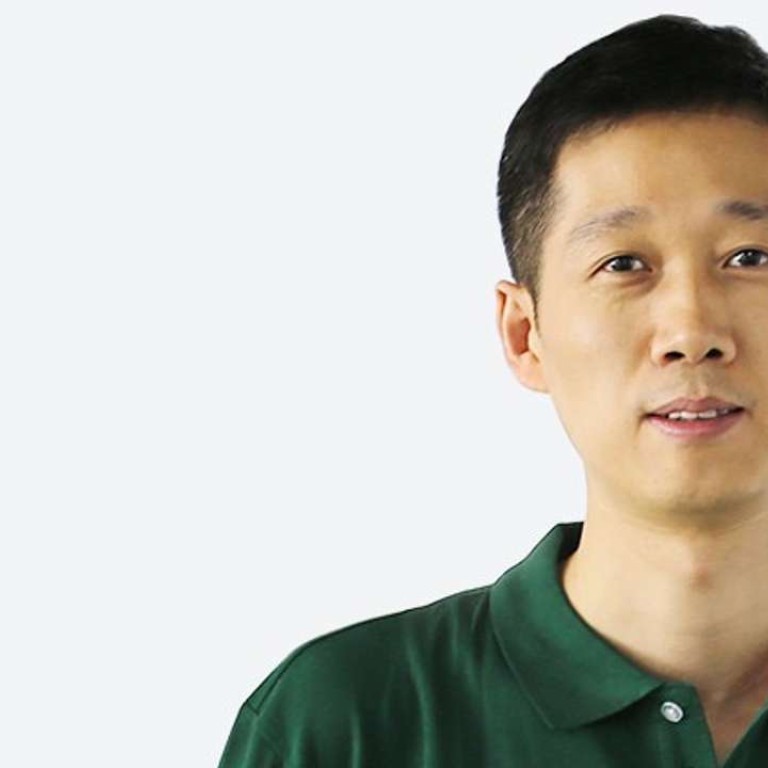
Former businessman now a crusader for safe kids’ products
Since discovering harmful chemicals on the school books used by his daughter, Wei Wenfeng has been advising parents about similar issues
Hangzhou-based businessman Wei Wenfeng embarked on a career change well into his professional life. Wei, 40, became concerned that the covers on school books on the market used by his only daughter contained harmful chemicals. Now he runs a firm that advises parents on the safety of everyday products. He spoke to Maggie Zhang.
How did this venture get started?
Last year, I sometimes discovered a strange smell coming from the plastic covers of books used by my nine-year-old daughter who is at primary school. As a veteran inspection engineer, I suspected these covers might contain harmful chemicals. So I paid more than 1,000 yuan (HK$1,120) to test a cover at the China National Supervision & Testing Centre of Fine Chemicals in Taizhou, Jiangsu province.
The test report proved that the product contained hazardous amounts of two materials, phthalate and polycyclic aromatic hydrocarbons, or PAHs. The first can harm children’s later reproductive health while the latter can cause cancer.
What action did you take?
I posted the results on social media and alerted government bodies including education, market supervision and quality inspection regulators, but I didn’t prompt any immediate action from them. It wasn’t required by national standards to test the two chemicals during quality inspections for the product.
To underline the significance of the problem, I paid about 10,000 yuan to test seven plastic covers and discovered that all of them contained large amounts of phthalate and three contained PAHs. I posted a video of a test on WeChat in an article explaining the issue. It went viral online and I become well known, especially among parents.
Why were you so determined to publicise the issue?
It’s common practice for primary school pupils in China to use such plastic covers to protect their books and there are 300,000 primary school students in Hangzhou and about 100 million nationwide. As a father and a veteran chemicals inspection engineer, I felt I should shoulder the responsibility to let the public become aware of this issue.
Why did you decide to abandon your established business and started a dedicated testing consultancy, DaddyLab, in March?
The article on social media was so popular that parents around the country kept sending me different types of products for testing - from cooking pots to napkin tissues.
They lacked knowledge of which agency to turn to and they trusted me to find a reliable testing agency on their behalf because of my professional experience and my disclosure of the toxic plastic covers for books.
Any hesitation before embarking on this business venture?
To be frank, if I was still under pressure to pay mortgages or my daughter’s tuition fees I wouldn’t have made such a shift, but it all happened at the right time. You can say I’m one of the rising middle class with an established career. A graduate from Zhejiang University, I worked at the Zhejiang Entry-Exit Inspection and Quarantine Bureau for a decade before moving on to run a private business as one of the co-founders and the general manager helping manufacturers that export to Europe meet safety quality standards.
Yet for a man reaching my age, besides wealth accumulation and building a career, I can’t help but ponder big questions such as “where am I really going in my life?” After receiving loads of comments online, I feel long-lasting happiness and also feel I’m needed to do this dedicated testing of daily products for consumers.
What has been the most rewarding moment for you since you embarked on this path?
In February, the market supervisors in Shanghai and Jiangsu province included the testing of phthalate and PAHs in their quality inspections for the plastic covers of books. I’m really happy and feel proud when knowing I helped raise the bar a little bit higher.
Can you explain the business model of your firm?
On the testing front, we raise capital through crowdfunding from consumers, mostly parents, for the testing of particular products which they have concerns about.
Meanwhile, we have set up an e-shop on WeChat to sell safe products to make money to keep DaddyLab, a firm with 18 staff, afloat.
Why choose this business model?
We don’t want to rely on manufacturers. We always take the side of consumers. We state our business model clearly to them. Yes, we act as a retailer and we aim to make money from selling the various products we recommend. They may not be cheap, but they are reliable and safe.
Have people questioned your way of doing business?
Of course. Some people sneered at me for being a merchant. I don’t want to be tagged as a social worker, but as a conscientious businessman who can make use of my expertise to make a contribution to society.
We do so by disclosing the unseen harms in daily products like plastic running tracks in schools, bamboo chopping boards and the so-called “magic cleaners” in kitchens.
Are you making money now?
Not yet. At the end of last year, I had personally burned through about one million yuan through this work and I told parents who follow my WeChat account that I might stop. They encouraged me to continue the work and in January we raised two million yuan from 112 parents as shareholders to set up the business. The two million yuan has been the main capital to run DaddyLab this year. I expect that we can break even at the end of this year and steer the business into profit in 2017.

